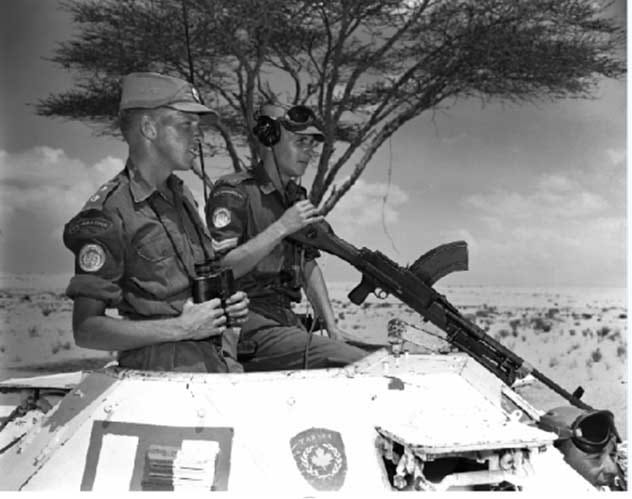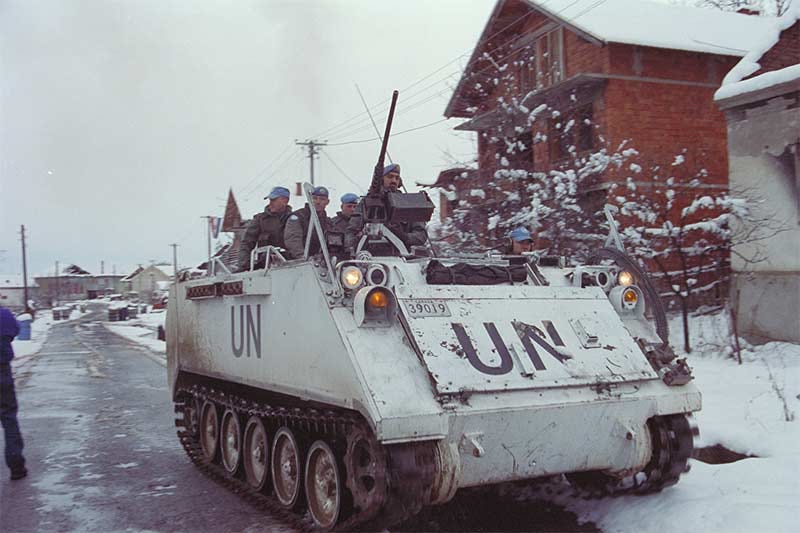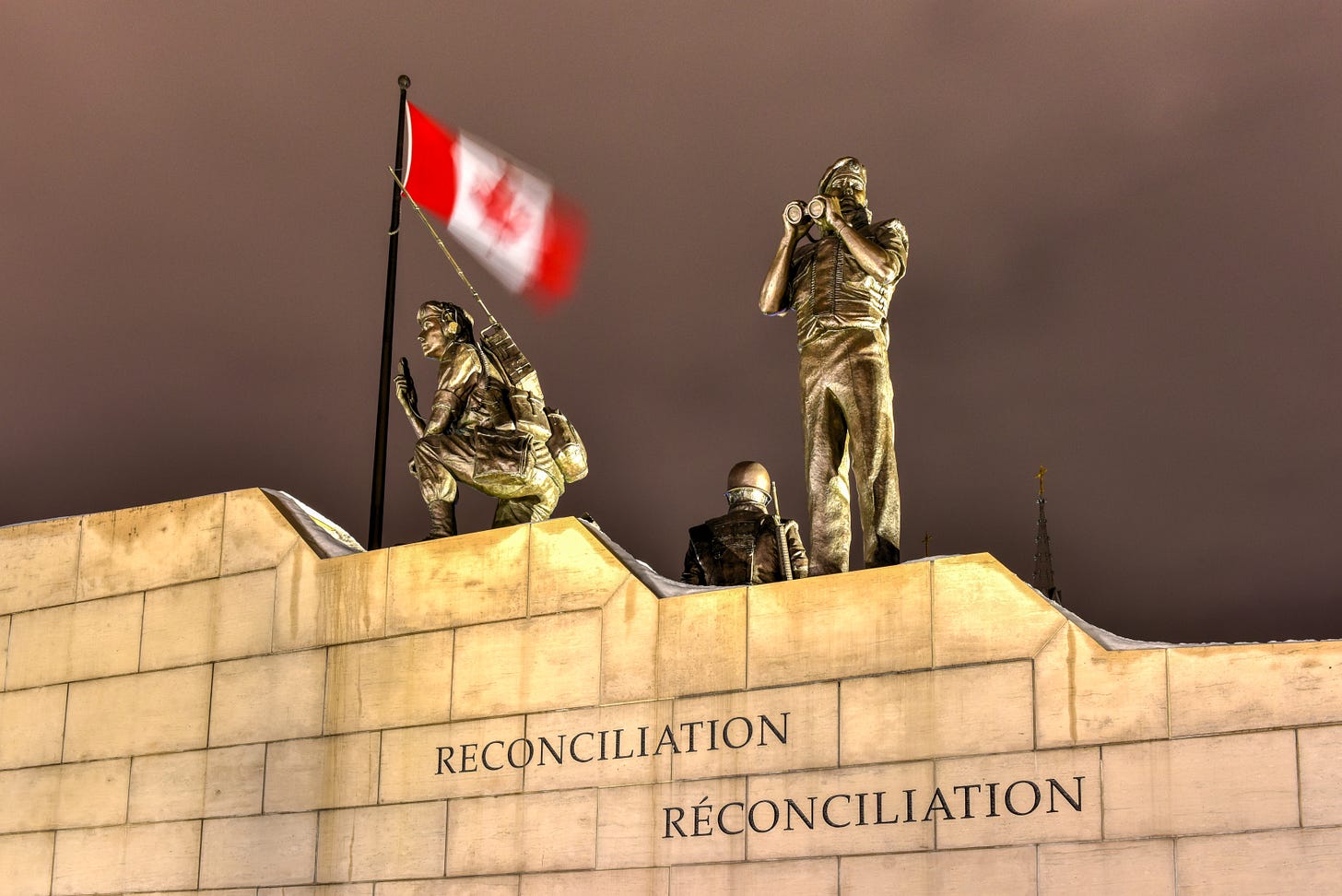Standing on Guard Again: A Legacy Worth Reviving
When the U.S. Steps Back, Canada Should Step Up
Why the World Still Needs Canada
Canada used to be one of the first names that came to mind when people thought about peacekeeping. For decades, our blue helmets were on the ground wherever help was needed most – from warzones to disaster zones, always aiming to stabilize and protect. But lately, we’ve stepped back. Our contributions have dropped off, even as the world feels like it’s tilting closer to chaos. Now’s the time to change that. We’ve got a legacy of moral leadership, fairness, and trust – and the world needs that again. Picking up the torch of peacekeeping isn't just the right thing to do – it’s the smart move for Canada’s future.
A Proud Peacekeeping Legacy Built by Pearson
Lester B. Pearson, Canada’s former Secretary of State for External Affairs (and future Prime Minister), helped set the global standard for peacekeeping. In 1956, with war looming over the Suez Canal, he proposed the world’s first UN peacekeeping force. It worked. The conflict was defused, and Pearson walked away with a Nobel Peace Prize.1 But more importantly, he built the foundation of Canada’s reputation as a principled, dependable country on the world stage.

For decades after, we lived up to that reputation. From Cyprus to Bosnia, more than 125,000 Canadians have served on peacekeeping missions.2 We weren’t the biggest army, but we were trusted, professional, and fair. That went a long way. At home, peacekeeping became part of who we are – something Canadians genuinely felt proud of.3
It’s time to get back to that.
Where Peacekeepers Are Needed Now – And Why Canada Fits the Role
The world is not short on conflict. UN missions in places like Mali, the Central African Republic, and South Sudan are overwhelmed and under-resourced.4
In our own hemisphere, Haiti is sliding deeper into crisis – and the U.S. has openly asked Canada to step up.5 This is exactly the kind of situation where we shine: not coming in with an agenda, but to help stabilize, train, and give people a shot at peace.
Looking ahead, if Ukraine and Russia ever reach a ceasefire, someone’s going to have to help keep it. That’s a massive trust job. Canadians are in favour of stepping into that role – over 60% say they’d support sending peacekeepers to help uphold an eventual peace deal there.6 We’re seen as reliable, culturally aware, and we don’t carry the same baggage as some of the bigger powers.
That’s a real asset.
Filling the Void Amid Declining U.S. Leadership
Let’s face it: global faith in the U.S. to lead has taken a big hit.7 That creates space – and a need – for countries like Canada to step up. We’re not perfect, but we’re widely viewed as trustworthy, practical, and fair-minded.8 That’s a powerful position to be in, especially in places where the bigger powers are viewed with suspicion.
We’ve got a unique opportunity here. Peacekeeping doesn’t just help the world – it helps Canada, too. We earn respect, we build partnerships, and we reinforce the international norms we depend on as a trading nation. It’s smart foreign policy and it’s true to who we are.

Benefits of Re-Establishing Canada’s Peacekeeping Legacy
This isn’t just a moral case, it is also practical. Bringing back peacekeeping as a core part of our foreign policy offers tangible benefits:
Stronger Global Reputation: People want to work with countries they trust. Being seen as a fair broker opens doors – for diplomacy, for trade, and for influence in international decision-making.
Homegrown Opportunities: Peacekeeping missions need training, tech, transport, and logistics – all things Canadian companies can provide. It could mean more investment in aerospace, comms systems, and innovation. Not to mention jobs.
A Boost to National Pride: This is something Canadians believe in. Our Armed Forces are full of people who joined to make a difference, and peacekeeping gives them a meaningful way to do that. Reinvesting in peace operations can also reconnect Canadians with a shared national purpose.
Answering the Call Once More
Canada’s peacekeeping legacy isn’t just a history lesson. It’s a roadmap. We’ve done this before – and we can do it again. We’ve got the people, the reputation, and the values. Now we just need the political will.
This isn’t about playing the hero. It’s about doing what we’ve always done best: showing up, standing firm, and helping build something better. The world could use more of that right now. And Canadians? We could use a little more to be proud of.
Let’s get back out there.
Sources
Veterans Affairs Canada. (2021). Lester B. Pearson and Peacekeeping.
https://www.veterans.gc.ca/eng/remembrance/history/canadian-armed-forces/peacekeeping/lester-pearson
Veterans Affairs Canada. (2021). Canadian Armed Forces and Peacekeeping.
https://www.veterans.gc.ca/eng/remembrance/history/canadian-armed-forces/peacekeeping
Granatstein, J. L. (2007). Whose War Is It? How Canada Can Survive in the Post-9/11 World. HarperCollins Canada.
Dorn, W. A. (2023). Canada and UN Peacekeeping: Still in Decline. Peacekeeping Archive.
https://walterdorn.net/243-canada-and-un-peacekeeping-still-in-decline
Tasker, J. P. (2023, Feb 8). U.S. Again Urges Canada to Lead in Haiti Crisis. CBC News.
https://www.cbc.ca/news/politics/haiti-peacekeeping-us-request-1.6741045
Angus Reid Institute. (2025, March). Survey on Peacekeeping and Ukraine.
https://angusreid.org/peacekeeping-ukraine-canada-2025
Pew Research Center. (2023). Global Attitudes Survey: Confidence in U.S. Leadership Declines.
https://www.pewresearch.org/global/2023/07/17/global-public-opinion-of-the-u-s-leadership
Policy Options. (2022). Canada’s International Image and Global Trust Rankings.
https://policyoptions.irpp.org/magazines/january-2022/canada-trust-global-image



